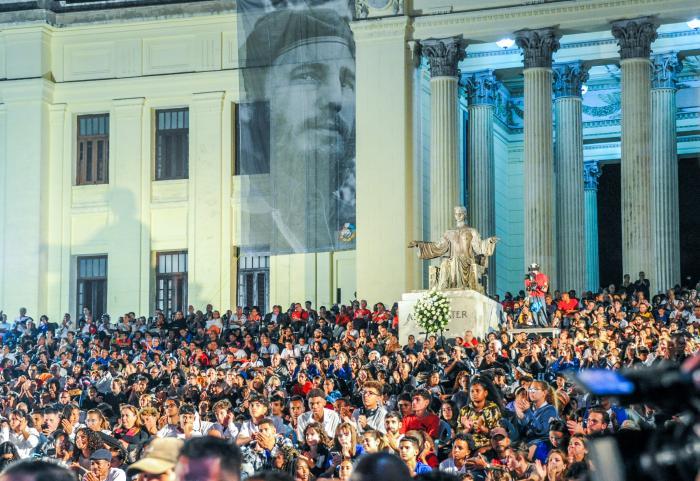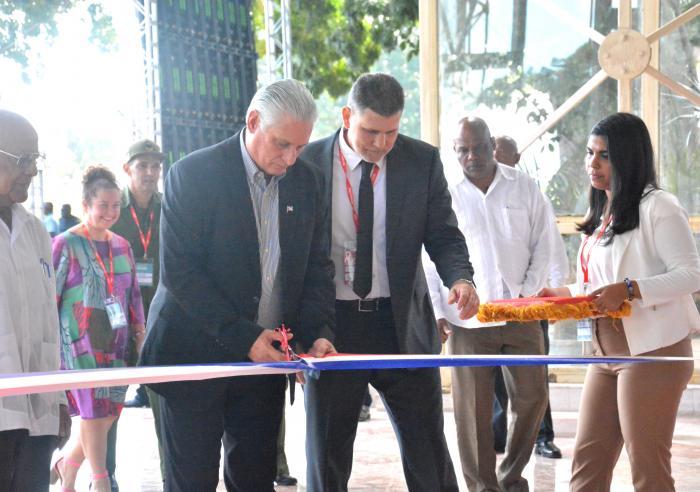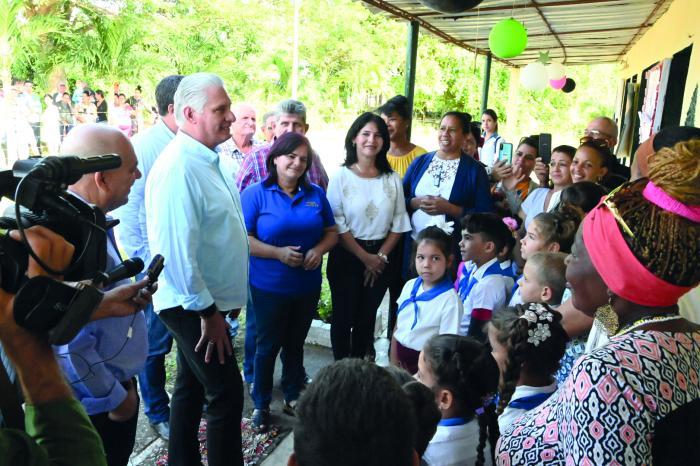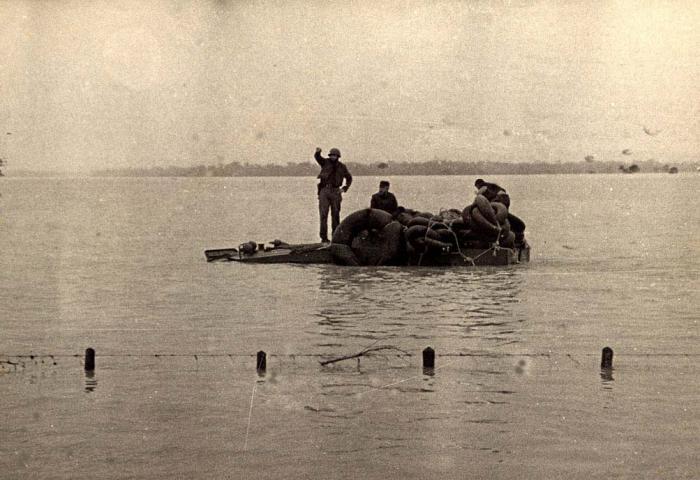


No one dies completely as long as his fire shines in memory. On the contrary, we all lose our way if we forget the men who have become symbols of dignity and the desire for justice of millions.Even if a thousand years go by, the steps of the University of Havana will vibrate every November 25th, with a sea of people in which every letter of the name of Fidel Castro Ruz was sown, as it happened this Monday on the eighth anniversary of his physical departure.The first secretary of the Young Communist League (UJC), Meyvis Estévez Echeverría, evoked, in the student scenario where the Commander in Chief became a revolutionary, the 1953 March of the Torches that resumed the struggle for freedom under Marti's guidance, and the various conversations with young people to reaffirm feelings and generate ideas.The evening was attended by the First Secretary of the Central Committee of the Party and President of the Republic, Miguel Díaz-Canel Bermúdez; as well as the members of the Political Bureau, Esteban Lazo Hernández, President of the National Assembly of People's Power, and Roberto Morales Ojeda, Secretary of Organization of the Central Committee. In the tribute to their leader, the Commander of the Revolution, Ramiro Valdés Menéndez, and the Commander of the Rebel Army, José Ramón Machado Ventura, remained faithful.HONORING A MAN'S WILLPOWERTo be Fidel means to struggle daily to be consistent with his example and make his dreams of justice and peace materialize, said Major General Victor Rojo Ramos, head of the Political Directorate of the Revolutionary Armed Forces (FAR's), yesterday at the tribute paid by this institution to the Commander-in-Chief.During the political-cultural evening, which took place at the FAR's Universal Hall, Fidel was remembered as the one who became a people, the one who lives in the dignity of Cuban men and women, and the one who knew the powerful force of youth to advance his work.
Rojo Ramos affirmed that today we face great challenges, and there are many adversities and limitations of all kinds, “that is why we are obliged to think of that immense leader who showed us that needs can overcome resources, but not the willpower and creativity of man.”





